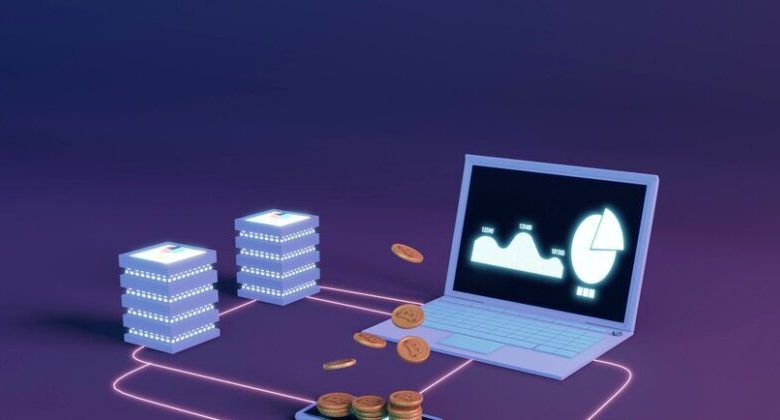Decentralized Finance (DeFi)

The financial world has seen its fair share of changes over the years, with the advent of the Internet, online banking, and mobile payment systems revolutionizing how we manage money. However, despite these advancements, many people still face significant barriers to accessing financial services.
Traditional banking systems often require extensive documentation, credit checks, and other hurdles that can exclude large segments of the population, particularly those in underbanked or developing regions.
Thankfully, there are many ways to overcome these barriers. One of the most notable solutions is Decentralized Finance (DeFi). It leverages blockchain technology to offer financial services without relying on traditional intermediaries like banks. This innovation opens up a world of possibilities for financial inclusion, allowing anyone with an internet connection to access a wide range of financial products and services.
In this article, let’s discuss if it’s a good solution. Here are key aspects of DeFi.
Accessibility and Inclusivity
DeFi makes financial services accessible to everyone with an Internet connection. Unlike traditional banks, which often require extensive documentation and credit checks, DeFi platforms allow users to access services like lending, borrowing, and trading with minimal requirements.
It works like alternative financing sources, such as online lenders like CreditNinja or credit unions. Both aim to make financial services more accessible. However, they differ in terms of underlying technology and operational structure. While online lenders still operate within the framework of traditional finance, DeFi operates entirely on blockchain technology.
Operating on blockchain technology enables DeFi to remove the need for intermediaries and enable peer-to-peer transactions. Without banks and other middlemen, DeFi transactions can be faster and cheaper, making it easier for individuals to manage their finances and access the needed services.
Moreover, these perks of online accessibility, minimal requirements, and lower transaction costs will lead to inclusivity. Through DeFi platforms, people in underbanked regions or those without access to traditional financial institutions can participate in the financial system. This can help bridge the gap between different socio-economic groups, providing opportunities for financial growth and stability to those previously excluded.
Transparency and Security
One of the main attractions of DeFi is its transparency. All transactions are recorded on a public blockchain, which means anyone can view and verify them. This level of transparency is unparalleled in traditional finance, where transaction details are often hidden behind layers of intermediaries.
Security is another strong point for DeFi. It uses smart contracts, which can provide a secure way to execute transactions. These contracts are self-executing agreements with terms directly written into code. In other words, they automatically execute when the specified conditions are met, which reduces the risk of human error or fraud while increasing efficiency.
However, it’s important to note that while smart contracts are secure, they aren’t infallible. Hackers have targeted DeFi platforms, exploiting vulnerabilities in smart contracts. As such, users must stay informed and cautious, choosing platforms with positive track records and strong security measures like thorough code audits and robust security practices.
Financial Control and Ownership
DeFi empowers users by giving them more control over their assets. Unlike traditional financial systems, where banks and other institutions hold and manage your money, DeFi allows you to be the sole custodian of your assets. This means you can access and manage your funds directly without going through intermediaries.
This is based on self-custody, a core principle of DeFi. It allows individuals to take ownership of their financial future, managing their assets and transactions without relying on traditional banks. With self-custody, users can engage in financial activities on their terms, ensuring more privacy and autonomy.
However, as the adage says, with great control comes great responsibility. Managing your own keys and assets requires a level of knowledge and diligence. The risk of losing access to your funds due to forgotten passwords or lost keys is a real concern. This emphasizes the importance of careful management and security practices.
Innovation and Opportunity
DeFi is at the forefront of financial innovation. As implied, it introduces a decentralized financial services model, which eliminates the need for traditional intermediaries like banks and financial institutions. This allows for the creation of new financial products and services that operate on a peer-to-peer basis.
One key innovation of DeFi is that it offers various ways to grow and manage assets unavailable in traditional finance. For example, users can participate in yield farming, staking, and liquidity mining to earn higher investment returns. These innovative financial strategies provide opportunities for financial growth and diversification.
Another exciting opportunity in DeFi is earning interest and rewards through decentralized platforms. Unlike traditional banks, which often offer minimal interest rates, DeFi platforms can provide higher returns through various financial strategies. This creates new avenues for financial growth and investment previously inaccessible to many.
Final Thoughts
Decentralized Finance (DeFi) is a good alternative to traditional finance. It offers numerous benefits, including accessibility, transparency, security, and innovation. This post briefly introduces DeFi, but there’s much more to learn. For in-depth information or personalized advice, readers are encouraged to explore further or seek professional help.




